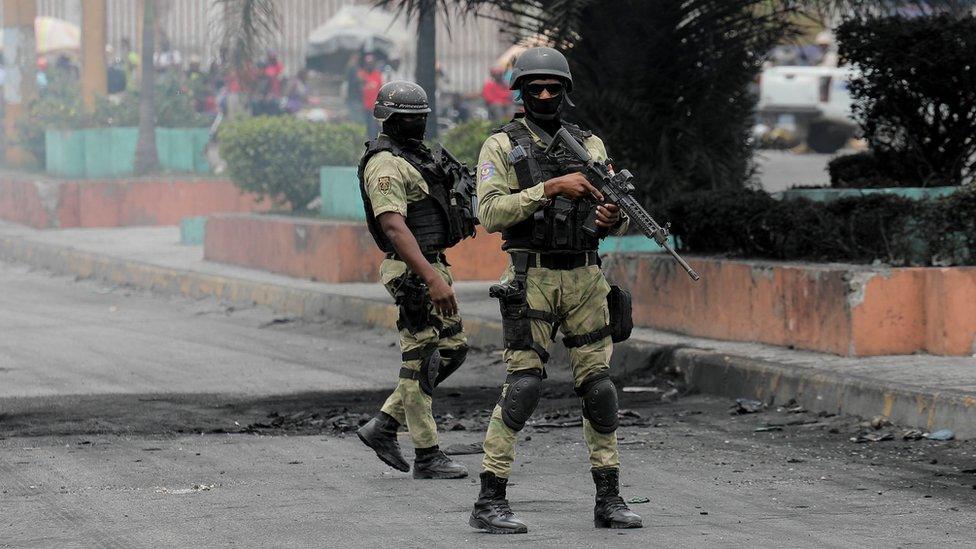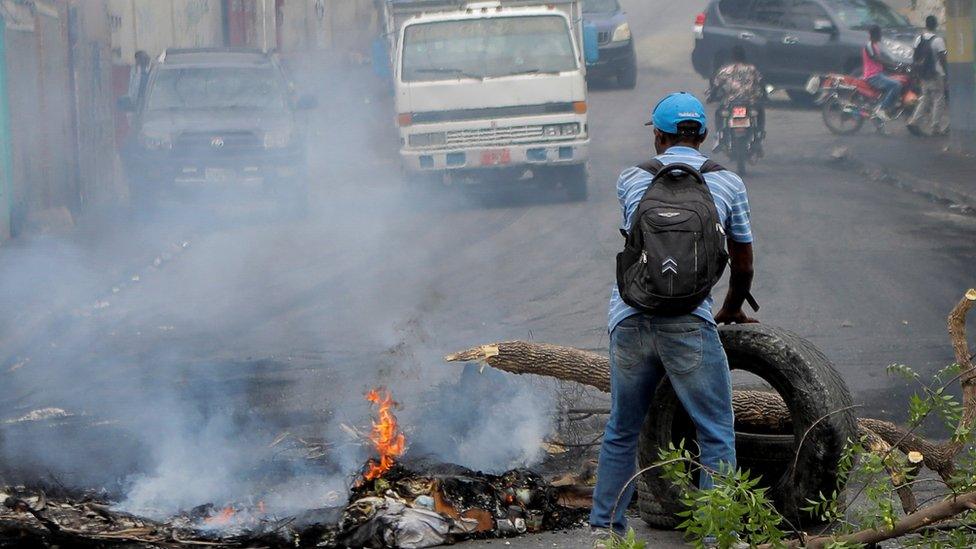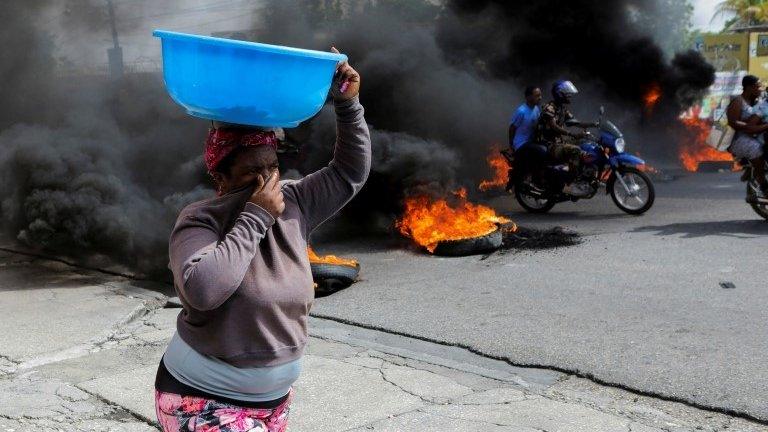Haiti fuel terminal reopens but gang war persists
- Published

Police have been moving in to clear the streets of protesters complaining about fuel shortages
Haiti's main fuel terminal has resumed operations after a severe wave of gang violence forced it to close last week.
The Varreux terminal is in the rundown Cité Soleil area, the scene of battles between two rival gangs, and its closure had caused petrol shortages.
The terminal operator tweeted late on Thursday that a tanker carrying 45,000 barrels of imported fuel had arrived.
Since last week, 89 people have been killed in Cité Soleil on the outskirts of the capital, Port-au-Prince.
In recent days, hundreds of protesters have been burning tyres and blocking roads demanding urgent action to restore the supply of petrol.
Gang violence has shot up since the assassination of President Jovenel Moïse by mercenaries a year ago.
According to the mayor of Cité Soleil, Joël Janéus, two criminal alliances, known as G9 and G-Pèp, are fighting for control of the neighbourhood.
One local human rights activist, Gabrielle Paul, told the BBC that conditions were "very difficult" in Cité Soleil, where thousands of residents who relied on trucks to deliver food and drinking water had been completely cut off by the violence.
"People are being killed and injured and the injured can't get proper care," she added.

Protesters have been blocking roads
The move to ease fuel shortages comes as the United Nations Security Council prepares to vote on extending its political mission in Haiti, hours before its mandate is due to run out.
China has called on the Security Council to ban sales of small arms to Haiti and to support sending a regional police force. It also wants sanctions to be imposed on gang leaders.
However, a draft resolution put forward by the US and Mexico stops short of an arms embargo, which other member nations consider unenforceable.
Under the proposed text, the UN would urge all countries to stop the transfer of small arms, light weapons and ammunition to anyone supporting gang violence and criminal activity in Haiti.
It would also declare itself ready to impose sanctions on individuals that could include travel bans and asset freezes "as necessary".
- Published14 July 2022
